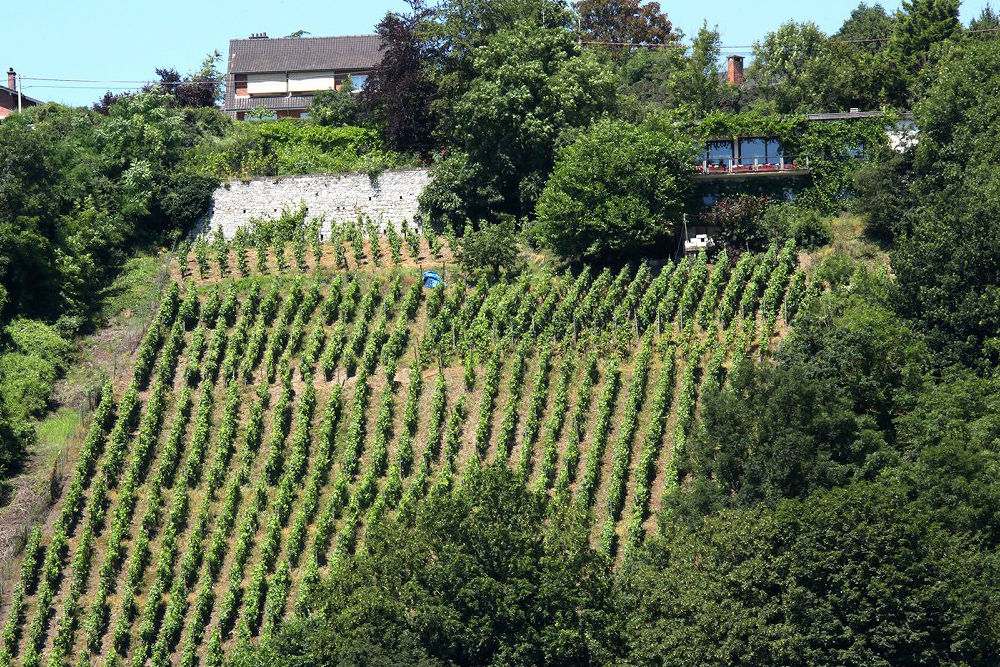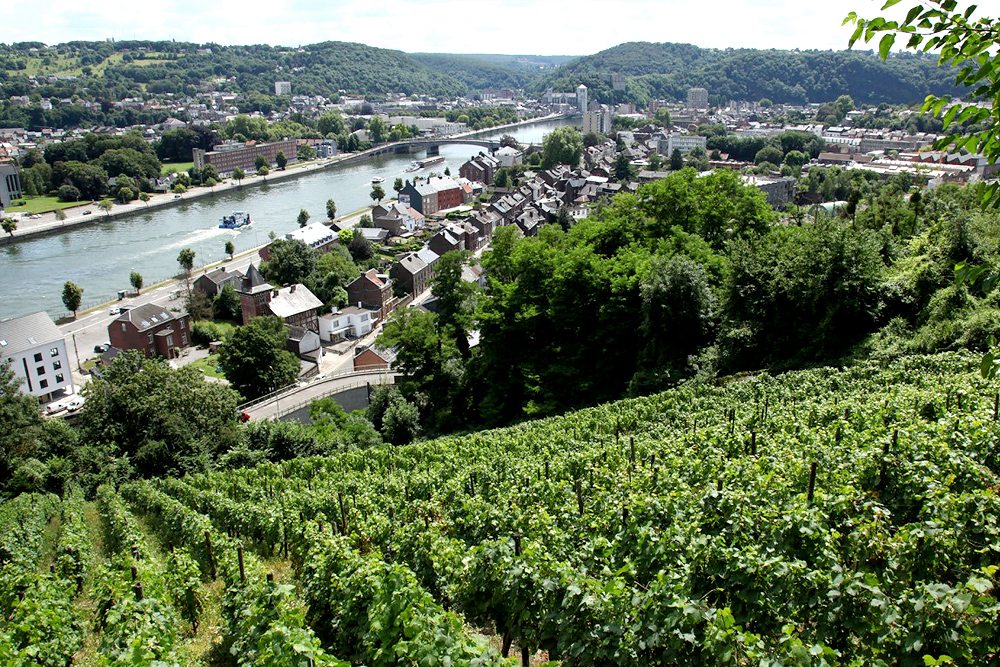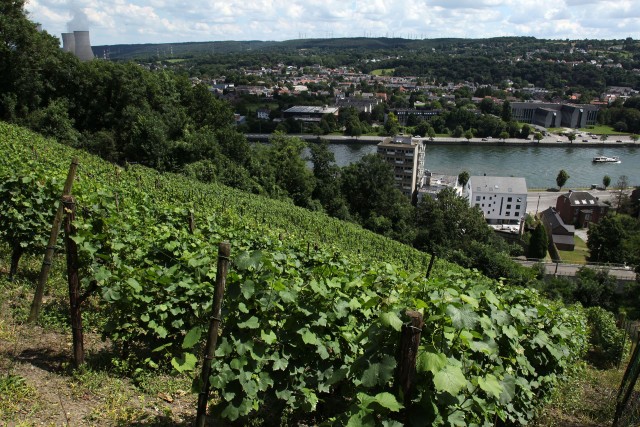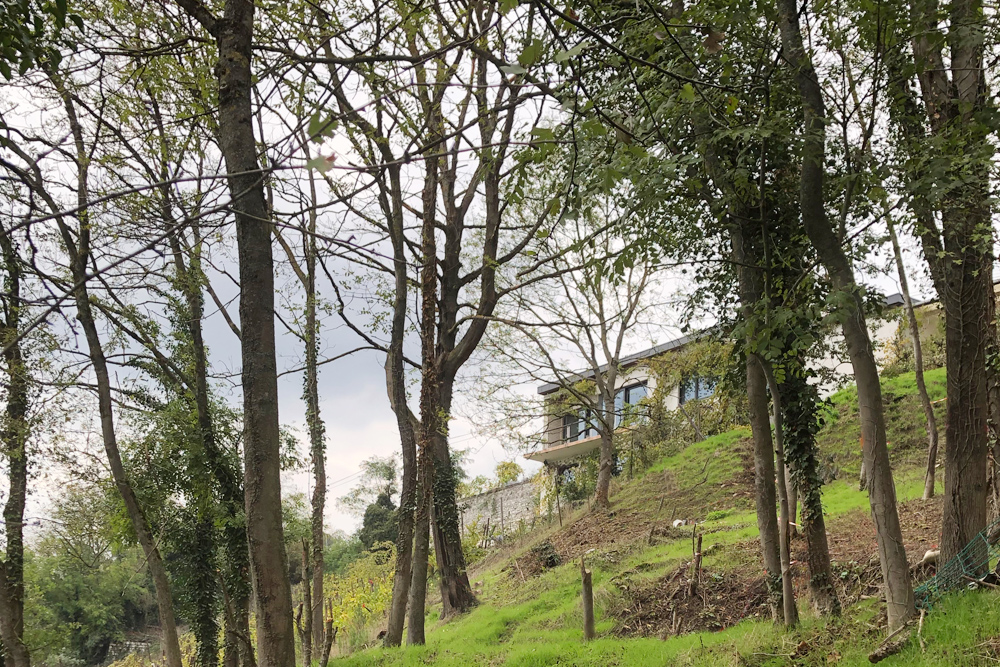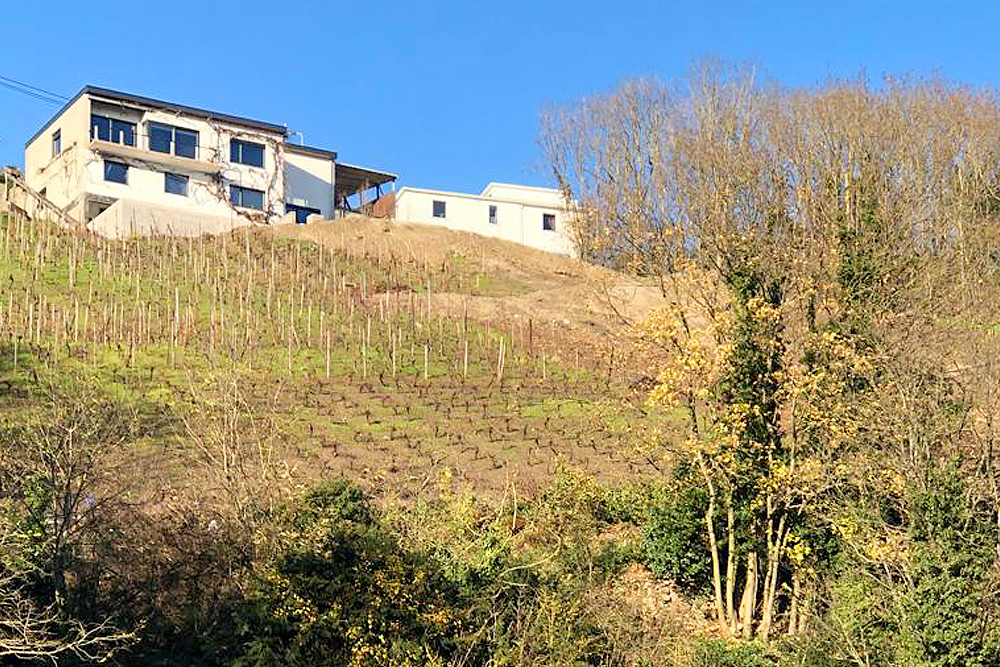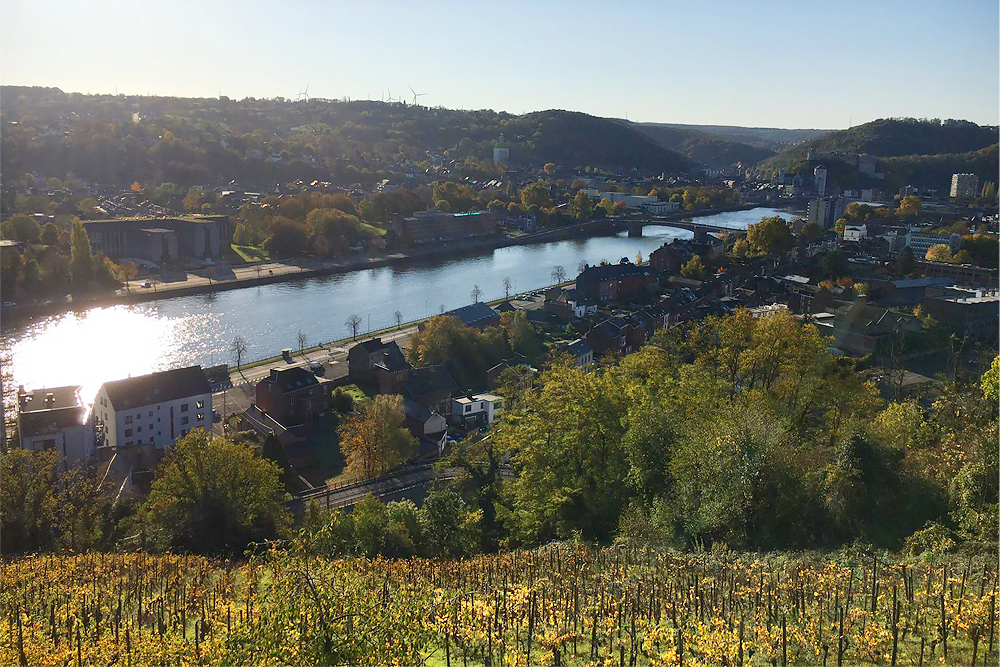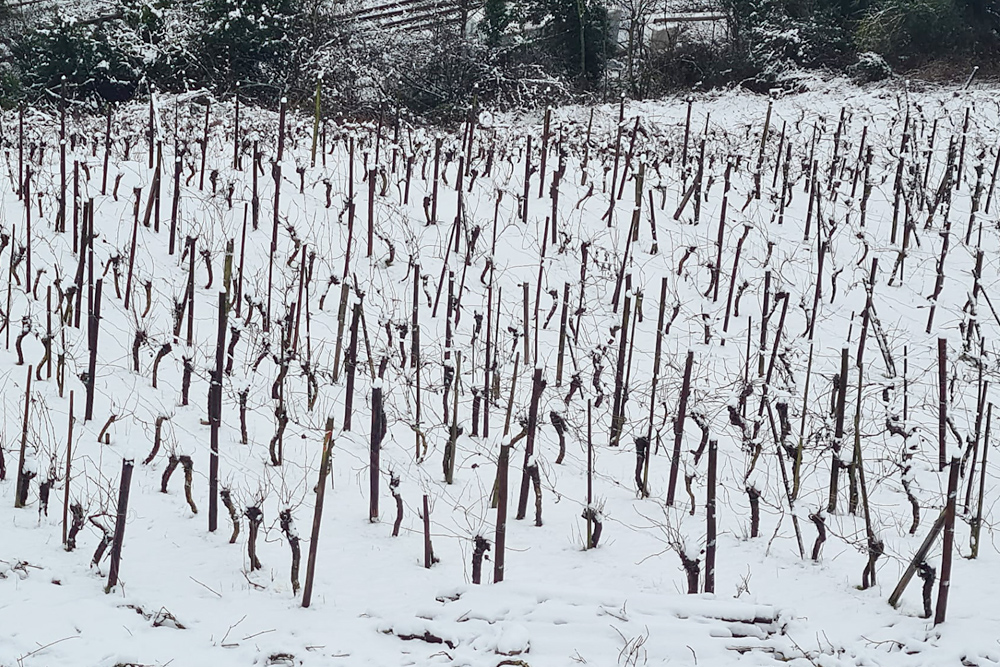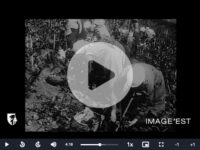The vineyard
The history of Bois Marie does not date back to yesterday, it even goes back to the time of the Gauls. Abandoned during the Second World War, the winegrowing activity was revived in the 1960s by the architect Charles Legot. After his death, other enthusiasts took over to maintain and bring this heritage to life.
Organic conversion and much more!
Since September 2020, the vineyard, with about 1,500 vines, has taken a new direction with the Hanin family! The conversion to organic farming on the one hand, but also the challenge of making it a mainly red vineyard.
This project to take over the Huy vineyard is a continuation of Gudule, the first Urban Winery in Belgium, a project in which Didier is involved. This concept consists of buying the grapes and bringing them to the place of vinification, in this case Brussels. The grapes from Le Clos Bois Marie will therefore naturally find their way to Gudule. Learn more about Gudule wines.
Visit of the vineyard and tasting
The opportunity to take over a vineyard does not come along twice in one’s life, guided by passion, Tania and Didier went for it… And this passion is passed on like a good bottle that is shared! Would you like to know more? During a visit, dive into the past, present and future of this wine tourism project. Tasting included.
Reservations and registrations
Visits are organised by reservation, usually on Fridays from 2 to 4 pm or another moment of the week-end.
Are you staying at the guest house?
A participation of 15 € per person is requested. (min. 5 people) Please specify your wish for a guided tour when booking the guest house. If you have already booked the guest house, please contact us.
Not staying at the guest house?
A contribution of 18 € per person is requested. (min. 5 pers.) To book or for more information, contact us via the contact form.
In order to offer you a tailor-made welcome, please book at least 8 days before your visit.
